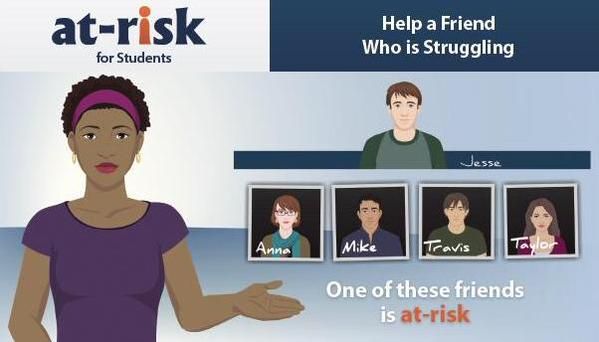Kognito training earns Tulane recognition from mental health firm

Kogntio Training
September 30, 2015
Tulane University was named an outstanding performer by Kognito earlier this month in completing and implementing its mental health awareness program, with a total of 3,367 students and faculty completing the training.
Kognito is one of the nation’s leaders in suicide prevention and mental health training among institutions of higher education. Founded in 2003, the organization engages with students and faculty on different strategies to identify and aid people in mental distress through a visual simulator.
Tulane was able to purchase Kognito software in 2014 as a result of receiving a three-year Substance Abuse and Mental Health Services Administration Campus Suicide Prevention grant authorized under the Garrett Lee Smith Memorial Act.
The act promotes suicide prevention programs for youth and college students through the Substance Abuse and Mental Health Services Administration. It also encourages administrators to focus on the mental health needs of students.
Lindsey Greeson, director of Tulane’s Center for Wellness and Health Promotion, said Kognito was adopted by the university because administrators also wanted to connect with students on a more accessible platform than the traditional classroom or workshop setting.
“The goal of Kognito is to meet students where they are, online,” Greeson said. “We offer traditional in-person suicide prevention workshops as well but realize that we have to go to students as much as we ask them to come to us. The benefit of Kognito At Risk is that any student, faculty or staff can complete the program 24/7 — on their own time.”
Kognito Vice President of Client Services Lori Janjigian said the Kognito simulator differs from other mental health training courses in that it creates an interactive and visual way of equipping college students and faculty with the tools necessary to promote mental health.
“They’re different than other trainings in that you really get to practice skills in a very fun and safe environment,” Janjigian said. “A lot of folks say, ‘Oh I had to go to a class or attend a lecture or watch a video or do a powerpoint,’ and the overwhelming response at Tulane … is that they like the fact that it’s interactive and that it’s almost in a game format, where you choose what to say and you get a response from a virtual student.”
Freshman Katrina Schwarzenberger says that she believes that though the format of Kognito was simplistic, the topics it dealt with were necessary to understand as young adults.
“[Kognito] seemed like it was geared towards a younger age group,” Schwarzenberger said. “But the general ideas that it was teaching are very serious and important for us as college students. Overall, it was very helpful.”
After last year’s student deaths, there has been a greater push by the student body to bring up conversations around the topic of suicide.
Greeson said the university is sensitive to this increase in demand for mental health services and is doing everything in its power to meet student interest.
“Last year’s tragedies continue to affect our community, and we recognize that the student body has a heightened interest in mental health promotion,” Greeson said. “We have increased our capacity to meet requests for mental health and suicide prevention-related materials, workshops and outreach.”
In the 2014-15 year, 1,602 students and faculty participated in the Kognito program, and this academic year 1,673 participated — an increase of 71 students.
Counseling and Psychological Services Director Donna Bender said that it is hard to determine one specific reason for the increase in participation in the Kognito program, but the campus as a whole is seeing a demand for more mental health programs.
“From the perspective of CAPS use, we have continued to see significant demand for our services,” Bender said. “It is difficult to attribute that to any one reason.”
Expanded efforts on campus include an Active Minds chapter founded by students to promote mental health and the development of a garden as a campus contemplation space.
“It will be beneficial to everyone as mental wellbeing becomes more integrated as a priority into the culture of Tulane,” Bender said.









Leave a Comment